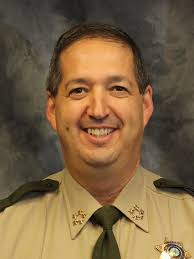S3E17 / How Do Criminals Get Their Guns? / Cassandra Crifasi, Daniel Webster, Harold Pollack, Sheriff Lonny Pulkrabek
How are guns transmitted from person-to-person? How do they make their way from legal sources into the hands of criminals, and how we can block that transmission?
Note: This season of American Diagnosis was originally published under the title In Sickness & In Health.
This podcast was created by Just Human Productions. We’re powered and distributed by Simplecast. We’re supported, in part, by listeners like you.
Celine Gounder: Hi, everyone. This is Dr. Celine Gounder. I’m the host of this show, “In Sickness and in Health.” If you like our approach to health storytelling, do me a small favor. This week tell one friend about this podcast. The more listeners we get… the more shows we can make… the more topics we can cover… and the more ambitious we can be. Thanks for listening. Now… on with the show.
Cassandra Crifasi: We, as a nation, have decided that there are certain people that shouldn’t own firearms. … They’ve committed a crime or maybe they are mentally unwell. We need to have something in place to actually make sure those individuals don’t obtain firearms.
Harold Pollack: We have a national gun market, and we have… local regulations that just aren’t… national in scope to really deal with that pipeline.
Daniel Webster: Bottom line is… robust laws do matter.
Celine Gounder: Welcome back to “In Sickness and in Health,” a podcast about health and social justice. I’m Dr. Celine Gounder. This season we’re looking at gun violence in America.
Celine Gounder: We’re going to start today’s episode in Iowa… in the office of Sheriff Lonny Pulkrabek. Lonny has… an interesting collection.
Lonny Pulkrabek: I sorta track people with criminal records that were getting gun permits. … I mean, it’s unscientific. it’s informal. It’s simply me keeping track when somebody’s firearms permit came across my desk for a signature. If they had any kind of offense that wasn’t minor…
Lonny Pulkrabek: I call it my “wall of shame.”
Celine Gounder: Sheriffs are the ones who process gun permits in Iowa. So Lonny has a front row seat to who’s getting guns in Iowa City.
Lonny Pulkrabek: Here’s one… in 2011, pled guilty to both disorderly conduct and interference with official acts, …2010, theft fifth which means it could be anything like a gas drive off or stealing something. 2011, assault on a peace officer. 2011, possession of controlled substance. 2014, disorderly house. 2014, driving under suspension. 2015, trespassing. Another trespass in 2015. 2008, possession of stolen property. 2006, a theft fifth.
Celine Gounder: Iowa used to be what’s called a may-issue state. That meant that sheriffs like Lonny could deny someone a permit to carry a gun if they felt they had good reason. But in 2011, that changed. Now, Iowa is a shall-issue state. That means that Lonny has to give a concealed carry permit to just about anyone who wants one. And that includes the guy who’s rap sheet Lonny has been reading this whole time…
Lonny Pulkrabek: …That’s one person.
Celine Gounder: Ballpark, what kinds of numbers since the change in the law of these permits have you issued to people who you would not have issued before?
Lonny Pulkrabek: Ballpark is several hundred a year.
Lonny Pulkrabek: …just for 2018, I’ve already got 140 people through May that have criminal records that were issued permits to carry. We’ve seen a lot more people with lengthy criminal histories who in fact are willing to go through and jump through the hoops and get the permit to carry it legally. The problem with that is, when they said criminals are already carrying, back then criminals, were carrying, but if they got caught carrying, there were consequences. And now, criminals are carrying, and they’re carrying legally.
Celine Gounder: Changes to state gun laws have radically expanded who gets to carry a gun in America. And while the argument is often made that this is a good thing for law abiding citizens, it also means it’s easier for everyone to get a gun … including people most would agree shouldn’t have them. In today’s episode, we’re going to look at how guns are transmitted… how they pass from legal sources into the hands of criminals… and what can be done to stop this flow of weapons.
Celine Gounder: Almost all guns used in a crime in the United States were first purchased somewhere legally: either from a licensed dealer or at a gun show.
Celine Gounder: But as you’ll see… because there are so many loopholes in this system… it’s not surprising that people who shouldn’t have guns… end up with them. Let’s start with the most basic law: the minimum age to buy a gun.
Daniel Webster: We have laws to keep underage youth from smoking cigarettes or drinking beer, but minimal law and regulation and oversight as relates to them accessing a highly lethal weapon.
Celine Gounder: This is Daniel Webster.
Daniel Webster: I’m a professor at the Johns Hopkins Bloomberg School of Public Health, where I direct the Center for Gun Policy and Research.
Celine Gounder: Daniel studies how criminals get guns. Federal law says you have to be at least 21 years old to buy a handgun.
Daniel Webster: However, if you are 18, 19, or 20 years old and want to buy a handgun, in most states, you can purchase from a private seller who does not have to keep records or initiate any kind of background check.
Celine Gounder: This might sound like a small detail… a minimum age of 18… versus 21? … but it’s a well known fact that criminal activity peaks in the late teenage years… and then… drops off by the time young people… usually young men… hit their mid to late 20s.
Celine Gounder: So where you draw that line… really matters. This came through loud and clear in one of Daniel’s surveys. He asked young people in prison where they got their guns.
Daniel Webster: What was particularly remarkable is that only 40% of the individuals who were incarcerated for committing violent crimes with guns were prohibited from having the gun they use to commit that crime. So they were legal gun owners before they committed their violent crime.
Celine Gounder: Almost half of the respondents said they legally bought the gun they used to commit a crime.
Daniel Webster: The most relevant thing from that study was that nearly 30% of the people in those states that had committed firearm violence… would have been disqualified in states with these higher levels of standards.
Daniel Webster: The biggest factor that explained why so many more people would have been prohibited in states with stricter laws has to do with— They drew the line at 21 rather than at 18.
Celine Gounder: This doesn’t mean these young offenders wouldn’t ever have committed a crime. But Daniel’s survey suggests those 30% of offenders wouldn’t legally have gotten a gun if they lived in a state that enforced a minimum age of 21.
Celine Gounder: Another big hurdle to gun access is price.
Daniel Webster: A very large share of violent crime that occurs, or violence generally that occurs, involves people with very little money. And we know that probably in large part due to a fairly comprehensive gun laws in New York, the guns there are relatively low quality. A cheap handgun might go for $600, $700 on the street in New York City, where that same gun would be $100 in Atlanta, where guns are plentiful. So don’t tell me, because it doesn’t line up with the data, that that price difference doesn’t matter with respect to how commonly youth or other high risk individuals acquire guns in New York City versus say Atlanta. There are differences.
Celine Gounder: OK, so let’s assume you are old enough to buy a gun. But maybe you’re like some of these criminals that Sheriff Lonny was talking about at the beginning of the show. Maybe you have a domestic violence conviction on your record that would prevent you from legally buying a gun. What could you do?
Cassandra Crifasi: There are lots of ways to get around federal law.
Celine Gounder: This is Cassandra Crifasi. Cassandra works with Daniel Webster at Johns Hopkins. Cassandra says if you don’t want to go through a background check you can just… well…. skip it.
Cassandra Crifasi: If you don’t want to buy from a federally licensed dealer and get a background check or otherwise have your name associated with the sale, you can find someone in the newspaper or at a gun show or on armslist.com or one of the other websites, and arrange to meet up and conduct a private sale, where that person is under no obligation to conduct a background check or keep records of any kind.
Celine Gounder: And this has big implications when it comes to keeping guns away from criminals.
Cassandra Crifasi: We see those states being source states for crime guns that are recovered in states with stronger gun laws, or even cities within states, and so it does contribute to diversions of guns to criminals’ underground gun market, but also those guns are then used in homicide.
Celine Gounder: Harold Pollack knows a lot about this. He’s the co-director of the University of Chicago’s Crime Lab… and Health Lab.
Harold Pollack: If I take a bicycle ride from my house, I can go into the city of Chicago. I can pass a gun shop that’s in Illinois but outside the city limits that faces very different regulations from what it would face if it was in Chicago, or I can bicycle into Indiana, and I can buy a gun in a totally, fundamentally less-regulated environment where the background checks and so on are just much more loose.
Celine Gounder: Harold estimates that as many as a third of Chicago’s gang guns come from Indiana.
Harold Pollack: Because right on our doorstep people have access to a less regulated gun market, what we see is, not just from Indiana, but from other places that are very accessible from the city, we see a lot of our crime guns are coming from outside the city, outside the state, in places where it’s just easier to get hold of a weapon without a stringent background check. And that makes it just so difficult for our local law enforcement to do their job in dealing with gang violence and all the issues that we have here in Chicago.
Celine Gounder: And there’s another dimension to the problem of source cities and source states for guns. It’s an economy of death and misery. A report from from the Chicago Police Department found that 20% of guns recovered from crime scenes in the city… came from just four locations: three Illinois cities outside Chicago and… from Gary, Indiana.
Celine Gounder: The vast majority of Americans dying from gun violence in cities like Chicago… are young black men. The impact is so great that gun homicides are driving down life expectancy for all black Americans by an average of four years.
Celine Gounder: The places that export guns to Chicago… they’re not the ones experiencing the bloodshed… but they are making money off those guns. Even if these sales are QUOTE “legal”… I have a hard time believing the dealers don’t know where the guns they’re selling… are really ending up.
Harold Pollack: We need to understand that guns are the fundamental ingredient in a lot of our violence problem, and we’re just not approaching it with the kind of seriousness as a nation that we need to, to keep guns out of the hands of dangerous people.
Celine Gounder: All this makes it sound like gun violence is a problem we can’t legislate away. And it’s true: you’ll never have perfect compliance with the law. But that doesn’t mean laws don’t matter.
Celine Gounder: Gun rights advocates will say that criminals don’t obey the law … and that they’ll obtain firearms whether or not background checks are mandated. How do you respond to that comment?
Daniel Webster: Well, I try not to scream because that’s my first instinct….
Celine Gounder: Daniel Webster again.
Daniel Webster: …It’s really poor logic. Using that logic, it suggests that any law is pointless. …if you apply the same logic, why do we have laws against drunk driving? Because look, people are driving drunk, and they’re getting arrested for it. So they aren’t obeying those laws. Why don’t we have laws against tax evasion? People were evading taxes, so that’s clearly not a deterrent. So why are we bothering with these tax laws? You can go on and on and on. Any kind of law somebody is going to break. The fact that someone breaks a law doesn’t mean that the law doesn’t have any impact.
Celine Gounder: Think back to that study Daniel mentioned earlier. Simply raising the minimum age to twenty-one to buy a gun could’ve kept guns out of the hands of 30% of the inmates he interviewed.
Daniel Webster: The laws are also in place to keep people from transferring or selling their firearms to dangerous people. So maybe you have dangerous people who aren’t going to be as deterred by certain gun laws, but the people who sell the guns should be deterred.
Celine Gounder: Law-abiding citizens… tend to follow the law.
Daniel Webster: Everything that we know from available data suggests that these laws do matter.
Daniel Webster: …there’s a body of research saying that the laws on the books, and how they are enforced, actually matter a great deal with respect to criminal access and carrying of firearms. So, criminals do care about it. They don’t want to be caught. … In some cases they don’t acquire guns at all. If they do acquire guns they try to minimize their risk that they’re going to be caught with those guns, which is frankly a good thing. We don’t want them walking around in public with their guns.
Celine Gounder: Criminals also tend to obey the law… most of the time… so changes in these laws can have real results. Take a look at what happened in Missouri and Connecticut when they changed their gun laws. Here’s Cassandra Crifasi again:
Cassandra Crifasi: We see both sides of it; What happens when you repeal the law and what happens when you pass the law. And these laws hold purchasers and sellers more accountable seem to affect the sources of guns and the underground gun market.
Celine Gounder: Let’s start with Missouri. That state got rid of its permit requirement to buy a gun in 2007.
Cassandra Crifasi: Their permit was a very short-term permit. Every time you wanted to buy a handgun, you applied at local law enforcement. You got fingerprinted. They had 30 days to do the background check, then your permit was good for 30 days. Once you used it, it was it, it was gone, and then if you wanted to buy another gun you had to reapply. The individuals in the Missouri legislature thought that was too onerous a task for its law abiding citizens and repealed the law.
Celine Gounder: Private gun sales in Missouri no longer required a background check. So then what happened?
Cassandra Crifasi: Following the repeal, in the first few years after the repeal, we saw significant increases in firearm homicide and overall rates of murder…
Cassandra Crifasi: … Interestingly, we also looked at firearm suicide and we saw increases in firearm suicide as well and people may think well, what does a purchase permit that looks at criminal prohibitions have to do with suicide? Part of that is these permits can delay acquisition, so if you want to obtain a firearm to attempt suicide, the permitting process would slow that down.
Celine Gounder: Compare that to what happened in Connecticut when they implemented a permit-to-purchase system.
Cassandra Crifasi: So Connecticut actually passed its permit-to-purchase law in 1995. The year prior, in 1994, passed a comprehensive background check law, but thought that perhaps they needed a more rigorous system to ensure that it was easy to comply. And so they passed their permit-to-purchase in 1995, and in the first 10 years after the law was passed, there was a 40% reduction in firearm homicide.
Cassandra Crifasi: We saw a 16% increase in firearms suicide in Missouri, and a 15% decrease in firearm suicide in Connecticut. When you think about the mechanism of a permit—applying to local law enforcement, then being able to examine a more detailed record, with more time, and also the delay of acquisition of a firearm, perhaps in a time of suicidal ideation—those things all together work to influence the risk of firearm suicide, and we saw protective effects in Connecticut with the law and harmful effects in Missouri upon repeal.
Celine Gounder: The repeal also impacted gun trafficking in Missouri.
Cassandra Crifasi: It’s easier to get guns within the state, and then you start to see the crime guns that are being recovered in a state originating in the state. So my colleagues evaluated that and found about a 70% increase in guns that were recovered in crime in Missouri that originated in Missouri after the law changed.
Cassandra Crifasi: We actually looked at the same thing in Maryland.
Celine Gounder: Maryland passed a permit-to-purchase law in 2013. It required background checks for all gun sales. It also required people to report stolen guns to the police within seventy-two hours of the theft.
Celine Gounder: We haven’t talked much about this yet… but stolen guns are another big way criminals get access to firearms. Often times it comes down to someone storing their gun in an insecure place… like the glove compartment in their car. Parking lots at sporting events… are especially popular with thieves looking to steal guns. But theft is also a convenient excuse to give the police… when you’re actually selling your gun… illegally… to someone who shouldn’t have one.
Cassandra Crifasi: Previously, if you had a gun lost or stolen, you weren’t obligated to report that to the police… if your gun was recovered in crime, and police came to your door and said, “We have your gun, who did you sell it to?” Then you say, “Oh, whoops, no. It was stolen.” It makes it hard to potentially prosecute people if they were diverting guns into the underground market.
Celine Gounder: Along with holding gun dealers more accountable… and banning assault-style weapons… Maryland saw good results.
Cassandra Crifasi: With regard to the underground gun market again, we saw about a 76% reduction in diversions of guns to criminals in Maryland after the permit-to-purchase piece passed.
Celine Gounder: Laws are at the heart of how both criminals and law-abiding citizens get their guns. Lax standards about who can buy a gun… makes it easier than ever for criminals to get them. Sheriff Lonny Pulkrabek says the push in Iowa to loosen these laws… was supposedly about making it easier for “law abiding” citizens to get guns:
Lonny Pulkrabek: What came to fruition is people with lengthy criminal records, people that are dishonest in a wide range, including sex offenders, are able to get permits to carry weapons.
Lonny Pulkrabek: The people that were advocating for “shall issue” really spoke out and said, “Well, the criminals are already carrying, and we want law-abiding citizens to carry.” What they would not do is define what a law-abiding citizen is.
Lonny Pulkrabek: Of course, Iowa is controlled a Republican governor, and a Republican house, and a Republican senate, and so they continue pushing the NRA and gun-rights agenda.
Lonny Pulkrabek: So there’s still no willingness by the legislature… to define what a law-abiding citizen is.
Celine Gounder: Cassandra Crifasi is a gun violence researcher, but she’s also a gun owner. That’s pretty unique. She considers herself a moderate gun owner: she supports the Second Amendment, but thinks universal background checks are essential to prevent criminals from getting guns… either directly or through the underground market.
Cassandra Crifasi: As the Constitution is currently interpreted, individuals have a right to own guns and keep them in the home for self-defense. But I also feel very strongly that we have a good evidence-base that there are policies that work to reduce diversions of guns to criminals, homicide and suicide by firearm, that don’t violate that Second Amendment right. Requiring that everyone who wants to obtain a firearm undergoes a background check. We, as a nation, have decided that there are certain people that shouldn’t own firearms because they forfeited that right based on their actions, right? They’ve committed a crime, or maybe they are mentally unwell.
Cassandra Crifasi: We need to have something in place to actually make sure those individuals don’t obtain firearms. There’s nothing about a background check for all sales that would violate a law-abiding citizen’s right. If you’re a law-abiding, you shouldn’t be concerned about undergoing a background check.
Celine Gounder: Last episode, we explained how gun violence behaves just like an infectious disease… and today, we showed how guns get transmitted… from person to person… from law-abiding citizen… to criminal. We saw how universal background checks and permit-to-purchase laws can make it harder for criminals to get guns… and bring about a drop in gun-related homicides and suicides… while shall-issue laws do the opposite. But contagion happens in an ecosystem… that also includes hosts… vectors… and the broader environment. In our next episode, we’ll talk about gangs. What are gangs, really? What role do they play in transmitting gun violence? And how can they be part of the solution? That’s next time, on “In Sickness and in Health.”
Celine Gounder: Today’s episode of “In Sickness and in Health” was produced by Zach Dyer and me. Our theme music is by Allan Vest. Additional music by The Blue Dot Sessions.If you enjoy the show, please tell a friend about it today. And if you haven’t already done so, leave us a review on Apple Podcasts. It helps more people find out about the show! You can learn more about this podcast and how to engage with us on social media at insicknessandinhealthpodcast.com. That’s insicknessandinhealthpodcast.com. I’m Dr. Celine Gounder. This is “In Sickness and in Health.”
Guests
 Sheriff Lonny Pulkrabek
Sheriff Lonny Pulkrabek







